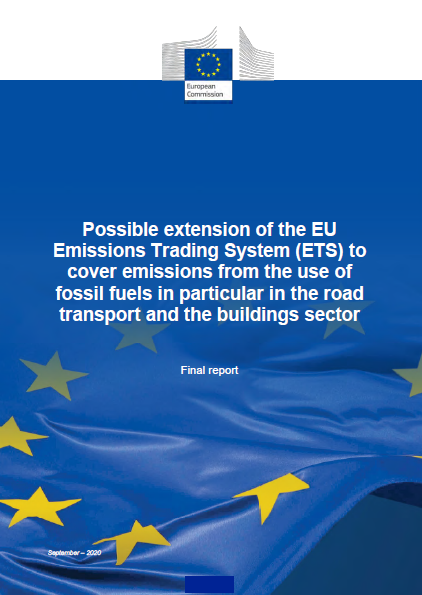Emissions trading is the European Union's central instrument for combating climate change and is designed to reduce greenhouse gases in a cost-effective manner. In this respect, emissions trading has shown its effectiveness: The rising price of CO2 has significantly reduced emissions, particularly in the energy sector.
Currently, EU emissions trading covers power generation, energy-intensive industries and aviation within Europe. However, as the EU has set itself much more ambitious climate targets for 2030, other sectors such as buildings and transport are also coming under the spotlight. Emissions trading as an instrument could also help reduce emissions in these sectors. In order to understand the impact of extending emissions trading to transport and buildings, a sound cross-sector and cross-country analysis is needed. The focus is primarily on economic analyses and impact assessments - in terms of the potential mitigation effect, but also the effects on income distribution and competitiveness.
Together with partners ICF, eclareon, Enerdata, Fraunhofer Institut, Carmbridge Econometrics, CITEPA, and Milieu, Ecologic Institute investigates the general options for extending emissions trading to transport and buildings – whether through an extension of the existing EU emissions trading scheme or the introduction of a stand-alone scheme. The consortium presents a comprehensive data analysis and presents the general architecture for a possible extension of emissions trading. In addition, the project examines the effects on the Effort Sharing Regulation, the existing EU emissions trading scheme and on the EU budget. A final step analyzes the possible inclusion of all fossil emissions in emissions trading.
Ecologic Institute investigates the extent to which transport and buildings are already affected by the existing EU emissions trading scheme, e.g. through district heating networks and electromobility. Furthermore, Ecologic Institute contributes case studies on non-European emissions trading schemes covering transport and/or buildings (including California, New Zealand and Tokyo). Furthermore, Ecologic Institute provides analyses on which price-based instruments are already applied in selected EU member states. Finally, Ecologic Institute examines how the expansion of emissions trading would affect competitiveness and the EU's existing climate policy instruments.




